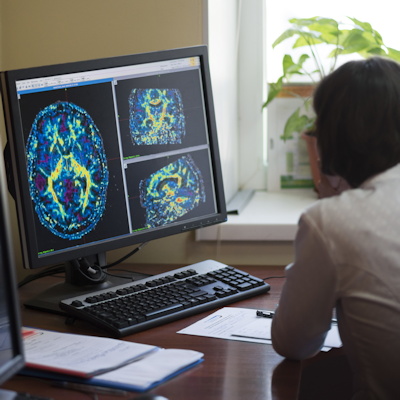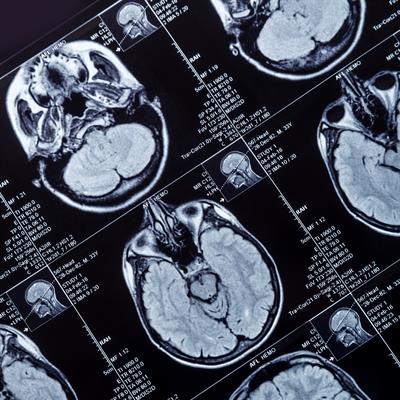October 6, 2022 -- VCU Massey Cancer Center researchers have discovered a cellular pathway that drives the growth of glioblastoma, a deadly brain tumor. Their study, published October 5 in Science Advances, could inform the development of new treatments.
Gliomas are cancers that start in the glial cells of the nervous system and account for nearly one-third of all brain tumors. Glioblastoma is the most aggressive type of glioma and is virtually incurable.
The epidermal growth factor receptor (EGFR) signaling pathway was previously known to be highly active in most glioblastomas. Signaling pathways are cellular "chains of command" through which a string of proteins is sequentially triggered to stimulate a specific cell function. The irregular activation of certain pathways often leads to disease, including cancer.
Blocking the function of the EGFR pathway was previously found to promote senescence, a mechanism critical in stunting the growth and spread of cancer cells. Massey researchers discovered that a specific protein called ubiquitin-specific protease 16 (USP16) regulates senescence and mitigates glioma cell growth.
The researchers also identified a separate strand of long noncoding RNA called lncEPAT that is activated through EGFR and is highly functional in glioblastoma. Their findings suggest that lncEPAT acts as a genetic moderator, allowing EGFR to escape the antitumor role of USP16 and fuel cancer progression. Preclinical models showed that the depletion of lncEPAT increased the activity of USP16 and stifled glioblastoma cell growth.
"We have compelling evidence that lncEPAT's cancer-driving function in glioblastoma is dependent on the inactivation of the USP16 protein," study author Dr. Suyun Huang, PhD, chair of cancer research at Massey, said in a statement. "EGFR-induced, overexpressed lncEPAT provides a promising new target for pro-senescence treatment for glioblastoma."
Copyright © 2022 scienceboard.net










